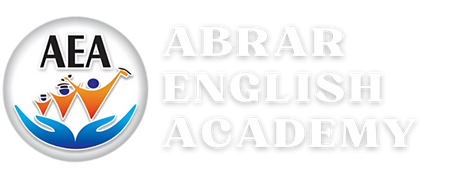Basic English Grammar Course
Course Duration 12 weeks
Our English grammar course aims to improve your basic grammar for PPSC, NTS, FPSC and other competitive Exams.
Module 1: Introduction to Grammar
- Basic Concepts
- What is Grammar?
- Importance of Grammar
- Parts of Speech Overview
Module 2: Parts of Speech
- Nouns
-
- Definition and Examples
- Types of Nouns: Common, Proper, Singular, Plural
- Countable and Uncountable Nouns
- Pronouns
-
- Definition and Examples
- Types of Pronouns: Personal, Possessive, Demonstrative, Interrogative
- Verbs
-
- Definition and Examples
- Main Verbs and Auxiliary Verbs
- Regular and Irregular Verbs
- Adjectives
-
- Definition and Examples
- Types of Adjectives: Descriptive, Quantitative, Demonstrative
- Comparative and Superlative Forms
- Adverbs
-
- Definition and Examples
- Types of Adverbs: Manner, Time, Place, Frequency, Degree
- Prepositions
-
- Definition and Examples
- Common Prepositions: In, On, At, By, With
- Conjunctions
-
- Definition and Examples
- Coordinating Conjunctions: And, But, Or, So
- Subordinating Conjunctions: Because, Although, If
- Interjections
-
- Definition and Examples
- Common Interjections: Wow, Ouch, Hurray, Oh
Module 4: Tenses
- Present Tense
-
- Simple Present
- Present Continuous
- Present Perfect
- Past Tense
-
- Simple Past
- Past Continuous
- Past Perfect
- Future Tense
-
- Simple Future
- Future Continuous
- Future Perfect
Module 6: Active and Passive Voice
- Understanding Voice
-
- What is Active Voice?
- What is Passive Voice?
- Converting Active to Passive
-
- Rules for Conversion
- Examples and Practice
- Converting Passive to Active
-
- Rules for Conversion
- Examples and Practice
Module 7: Direct and Indirect Speech
- Understanding Speech
-
- What is Direct Speech?
- What is Indirect (Reported) Speech?
- Converting Direct to Indirect Speech
-
- Rules for Conversion
- Changes in Tense, Pronouns, and Time Expressions
- Examples and Practice
- Converting Indirect to Direct Speech
-
- Rules for Conversion
- Examples and Practice
Assessment and Evaluation
- Quizzes and Tests
- Assignments and Projects
- Class Participation
- Final Examination
Advanced English Grammar Course
Module 3: Sentence Structure
- Sentence Basics
-
- What is a Sentence?
- Subject and Predicate
- Types of Sentences: Declarative, Interrogative, Imperative, Exclamatory
- Simple Sentences
-
- Structure and Examples
- Forming Simple Sentences
- Compound Sentences
-
- Structure and Examples
- Using Coordinating Conjunctions
- Complex Sentences
-
- Structure and Examples
- Using Subordinating Conjunctions
Module 5: Punctuation
- Basic Punctuation Marks
-
- Periods
- Commas
- Question Marks
- Exclamation Marks
- Additional Punctuation Marks
-
- Apostrophes
- Quotation Marks
- Colons and Semicolons
Module 8: Common Grammar Mistakes
- Subject-Verb Agreement
-
- Rules and Examples
- Common Errors
- Pronoun-Antecedent Agreement
-
- Rules and Examples
- Common Errors
- Misplaced Modifiers
-
- Identifying and Correcting Misplaced Modifiers
- Sentence Fragments
-
- Identifying and Correcting Fragments
- Run-on Sentences
-
- Identifying and Correcting Run-ons
Module 9: Basic Writing Skills
- Paragraph Writing
-
- Structure of a Paragraph
- Topic Sentences and Supporting Details
- Simple Essay Writing
-
- Introduction, Body, and Conclusion
- Basic Essay Structure
- Letter Writing
-
- Informal Letters
- Formal Letters
Module 10: Basic Vocabulary Building
- Common Vocabulary
-
- Everyday Words and Phrases
- Vocabulary Lists
- Synonyms and Antonyms
-
- Understanding Synonyms
- Understanding Antonyms
- Using a Dictionary and Thesaurus
-
- How to Use a Dictionary
- How to Use a Thesaurus
Module 11: Basic Reading Comprehension
- Reading Strategies
-
- Skimming and Scanning
- Finding Main Ideas and Details
- Reading Practice
-
- Short Stories
- Simple Articles
Module 12: Basic Listening and Speaking Skills
- Listening Skills
-
- Active Listening
- Listening for Specific Information
- Speaking Skills
-
- Basic Pronunciation
- Everyday Conversations
- Asking and Answering Questions



